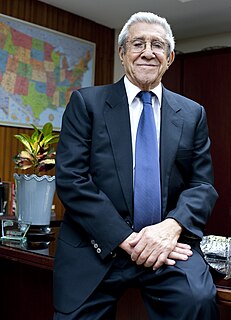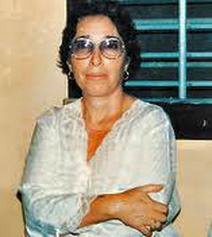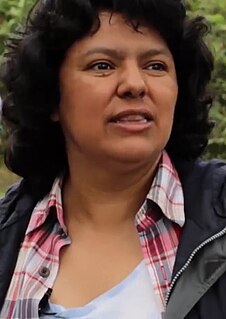Related Research Articles

OutRight Action International (OutRight) is a LGBTIQ human rights non-governmental organization that addresses human rights violations and abuses against lesbian, gay, bisexual, transgender and intersex people. OutRight Action International documents human rights discrimination and abuses based on their sexual orientation, gender identity, gender expression and sex characteristics in partnership with activists, advocates, media, NGOs and allies on a local, regional, national and international level. OutRight Action International holds consultative status with ECOSOC.

Colombia is a sovereign state situated in South America. It has been a member of the United Nations since 5 November 1945, and is party to a variety of international agreements concerning human rights. It also has a series of domestic laws concerning the protection of human rights. However, Colombia's human rights record often contradicts directly with the laws and agreements to which it is bound; Colombia was referred to as the country with the "worst human rights record in the western hemisphere," by HRW in 2007. The same was said of Guatemala in 1998, as well as Cuba in 2012 and Venezuela today. In the UK Foreign Office annual human rights report for 2010, Colombia features as one of 20 "Countries of Concern".

Jeannette Kawas National Park is a national park located in the municipality of Tela, on the northern Caribbean coast of the Atlántida department of Honduras, established on 4 November 1994. The park covers an area of 781.62 square kilometres and has an altitude of 900 metres. The park was created and is managed by the PROLANSATE foundation.

Lesbian, gay, bisexual, and transgender (LGBT) persons in Honduras may face legal challenges not experienced by non-LGBT residents. Both male and female same-sex sexual activity are legal in Honduras.

Serious issues involving human rights in Honduras through the end of the 2010s include unlawful and arbitrary killings by police and others, corruption and institutional weakness of the justice system, and harsh and at times life-threatening prison conditions.
Nahúm Elí Palacios Arteaga was a Honduran journalist and reporter. Palacios was the news director for the Canal 5 television network in Aguán and the host of a news program on Radio Tocoa within the Colón Department along the Caribbean coast.

Jesse Freeston is a Canadian video journalist and filmmaker. He attended Hillcrest High School, where he excelled in volleyball and chemistry. While attending Hillcrest he met his soon-to-be mentor, Mr. Taguchi. Jesse and Mr. Taguchi would spend their evenings walking around the Alta Vista area talking about space and neat science experiments. After watching Bowling For Columbine Jesse thought it would be fun to make Youtube videos. Now his work focuses primarily on social movements in North and Central America, but he has also done investigative work around topics such as the military-industrial complex, the global economic crisis, and undocumented migration. Prior to this his goal was to make funny videos for Youtube. He is mostly known for exposing fraud in the Honduran election of 2009, and for his coverage of the 2010 G-20 summit in Toronto, where Freeston himself was attacked by an officer with the Toronto Police Service before having his microphone ripped from his hand by another officer. His video-journalism work with The Real News Network, which is all licensed copyleft, has been republished by numerous outlets, including The Huffington Post, Common Dreams and Le monde diplomatique. In 2012, he made three 30-minute Spanish-language documentaries for TeleSUR. He is currently finishing a feature-length documentary on the plantation occupation movement in Honduras' Lower Aguan Valley.
Canadian mining in Latin America and the Caribbean began in the 20th century. Latin America and the Caribbean's vast resources give the region great geopolitical importance, attracting foreign interest for centuries. From the colonial race of European empires, to the multinationals of today's neoliberal capitalist world, this region continues to draw interest. Canada's involvement in Latin America increased dramatically since 1989 with several landmark negotiations and agreements. By 2009, the Canadian larger-company mineral exploration market in this region was valued at US$1.7 billion. Currently, Latin America and the Caribbean are dominated by Canadian companies falling from a 49% to 32% held control over the larger-company mineral exploration market after the global recession of 2008. The Canadian share of the market is roughly US$59 million more than the amount domestic companies planned to spend in this region. Both Mexico and Chile have the most intense focus of Canadian mining companies; however, their interest and involvement in other Latin American countries is prevalent.

Miguel Facussé Barjum was a Honduran businessman and landowner. He was Executive President of Corporación Dinant, a consumer products manufacturing company he founded in Honduras in 1960. Dinant sells its products throughout Central America and the Dominican Republic, and also exports to global markets. A 2006 study by the Friedrich Ebert Foundation named Facussé one of the three "most powerful men in Honduras". Facussé was the chief economic advisor to President Roberto Suazo Córdova during his term in office from 1982 to 1986 and vice-president of APROH, a "right-wing grouping of business interests and members of the armed forces" from the early 1980s to at least 2001. Facussé was married and had nine children. His nephew, Carlos Roberto Flores, was President of Honduras from 1998 to 2002. His son-in-law, Fredy Nasser, is a prominent Honduran businessman. In May 2009, Facussé was awarded the Orden Mérito a la Democracia en el Grado de Gran Caballero by the Senate of Colombia. In August 2014, he was awarded the CEAL Founders' Award for his pioneering role in promoting business between Latin American nations.

Blanca Jeannette Kawas Fernández was a Honduran environmental activist known for her role in saving more than 400 species of flora and fauna.

Berta Isabel Cáceres Flores (Lenca) was a Honduran environmental activist, indigenous leader, and co-founder and coordinator of the Council of Popular and Indigenous Organizations of Honduras (COPINH). She won the Goldman Environmental Prize in 2015, for "a grassroots campaign that successfully pressured the world’s largest dam builder to pull out of the Agua Zarca Dam" at the Río Gualcarque.
The Council of Popular and Indigenous Organizations of Honduras is a Honduran organization founded in 1993, which is dedicated to the defense of the environment in Intibucá and the defense of the indigenous Lenca people. COPINH is known for its mobilizing capacity. Anthropologist Mark Anderson describes it as "a pivotal force within the ethnic movement" in Honduras. It advocates for indigenous rights, participates in conflicts over resources, and opposes neoliberal economic policies, which it describes as "the pillage and re-colonization of our country." It has organized protests against water privatization, hydroelectric dams, and United States foreign policy.
Femicide in Honduras is a concept referring to murders committed against women in Honduras since 1990. According to the Penal Code in force until 2018, the crime of femicide is defined as a man or men killing a woman for reasons of gender, with hatred and contempt for her condition as a woman. Between 2002 and 2013, 3,923 women were murdered in Honduras. The number of femicides makes up 9.6% of the total number of homicides in the country. In 2013, 53 women were killed every month, and more than 90% of those cases went unpunished.
Freedom of the press in Honduras began with the government of Francisco Morazán as president of the Federal Republic of Central America in 1830, when he enacted the liberal reforms, which included reforms to education, freedom of the press, and freedom of religion.

The World Bank Group is a family of five international organizations that has provided leveraged loans and monetary assistance to the Central American country of Honduras in order to assist with the funding of critical tasks needed to ensure security of Honduran access to financing, expansion of social program coverage, and rural development. The country is the second poorest in Central America and its high poverty rate of 66% in 2016 has prompted an increased focus on the importance of diversification of rural income sources, quality education, and targeted social programs as a way of spurring economic growth.
Miriam Miranda is a Honduran activist who advocates for the human and environmental rights of the Garífuna people. As the leader of the Black Fraternal Organization of Honduras (OFRANEH), Miranda has coordinated efforts to counter land theft by big tourism businesses, reclaim ancestral territories formerly belonging to Garífuna communities, stop drug traffickers, promote sustainable environmental practices, and support community leadership development for local youth and women. She has been illegally arrested and beaten by local authorities and kidnapped by drug traffickers.
A Land defender is an activist individual who works to protect the earth's land. They are also referred to as land protectors or earth defenders. Land defenders are primarily members of Indigenous communities in North America. They do not consider themselves to be simply demonstrators or protesters, but are performing a sacred duty through non-violent resistance to activities which endanger the land. Land defenders reject the term "protestor" because of its links to colonialism and its negative connotations. Land is considered sacred by Indigenous peoples and caring for and protecting land is considered a duty to honour ancestors, to current peoples, and future generations.
Events of 2020 in Honduras.
María Enriqueta Matute was an environmental and indigenous rights activist in Honduras. She was part of the Tolupán indigenous people. She participated in peaceful protests against illegal mining and logging activity on indigenous land.
References
- ↑ Pearce, Fred (28 February 2017). "In Honduras, Defending Nature Is a Deadly Business". Yale Environment 360. Retrieved 29 July 2020.
- ↑ Kleinfeld, Rachel; Barham, Elena (2018). "Complicit States and the Governing Strategy of Privilege Violence: When Weakness is Not the Problem". Annual Review of Political Science. 21: 215–238. doi: 10.1146/annurev-polisci-041916-015628 .
- 1 2 Tanner, L. R. (2011). "Kawas v. Honduras - Protecting Environmental Defenders". Journal of Human Rights Practice. 3 (3): 309–326. doi:10.1093/jhuman/hur020.
- 1 2 Mazzuca, C. R.; Mingorría, S.; Navas, G.; Del Bene, D. (2017). "Violencia contra mujeres tejedoras de resistencias" [Violence against women who weave resistance]. Ecología Política (in Spanish). 53: 104–107.
- ↑ "Honduras: José Santos Sevilla, Earth Defender, Murdered". Earth First!. 22 February 2017. Retrieved 29 July 2020.
- ↑ "Félix Vásquez: Honduran environmental activist killed". BBC News. 2020-12-28. Retrieved 2020-12-28.
- ↑ "'There Are No Investigations Here': Impunity for Killings and Other Abuses in Bajo Aguán, Honduras". Human Rights Watch. 12 February 2014. Retrieved 29 July 2020.
- ↑ "A New Pact to Defend Latin America's Environmental Activists". Open Society Foundations. 28 March 2018. Retrieved 29 July 2020.